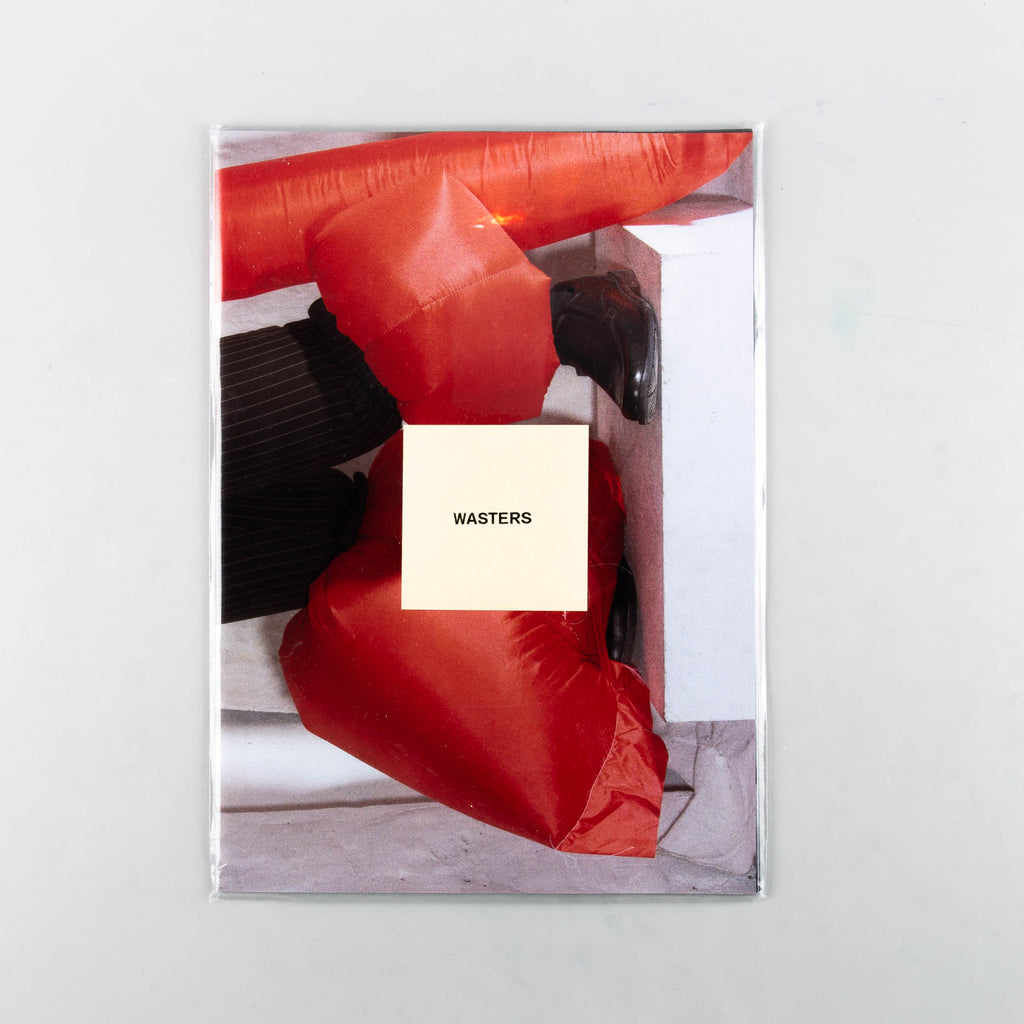WASTERS
Rick Pushinsky and Mark Jan Krayenhoff van de Leur
£12.00
WASTERS, a collaboration between photographer Rick Pushinsky, artist and set designer Rory Mullen, artist Matthew de Kersaint Giraudeau and stylist Karlmond Tang. WASTERS is an irreverent and surreal commentary on male ego, the neoliberalised labour landscape and the pointlessness of what David Graeber defined as “bullshit jobs”. Appropriating the characteristics... Read More
WASTERS, a collaboration between photographer Rick Pushinsky, artist and set designer Rory Mullen, artist Matthew de Kersaint Giraudeau and stylist Karlmond Tang. WASTERS is an irreverent and surreal commentary on male ego, the neoliberalised labour landscape and the pointlessness of what David Graeber defined as “bullshit jobs”. Appropriating the characteristics of a fashion lookbook, WASTERS maps the interior and exterior worlds of a disaffected office worker, his redundancy due to automation all but guaranteed.
The advent of automation promised a 15 hour working week that has not come to pass. Whilst many labour-intensive, blue collar jobs have already been taken over by machines, AI now looks set to replace many of the clerical and service sector jobs that, until the pandemic, kept office buildings full and city-centre Prets busy. We’re currently witnessing a transition from a swollen administrative model – employees who are, in Graeber’s works, “basically paid to do nothing, in positions designed to make them identify with the perspectives and sensibilities of the ruling class” – to skeleton workforces of multi-agent AI systems and chatbots, sold to investors as “futureproofing” whilst conveniently driving costs down. But here in the terminal phase of the office, the traditional idea of work as a moral value remains, with presence at one’s desk considered a marker of productivity in itself. Denial, anxiety, oblivion, bullshit: enter WASTERS.
In these playfully constructed scenes, the hot air of the professional-managerial class becomes a literal uniform, like an animal that can inflate its own skin for protection; engorged and fragile. Poses and gestures appear exaggeratedly masculine, emphasising what Shahidha Bari refers to as the “dignified deception” of tailored officewear, and the superiority complex of white collar liberals blinded to their impending irrelevance. Frivolous still lifes, precarious sculptures of administrative paraphernalia, and bulbous, pathetic mannequins are all suggestive of a bored pencil pusher’s distracted doodling. The photographs are distorted and stratified through a process of repetitive Xerox reproduction, the illicit mischief of an after-hours office party tipping over into mania and paranoia.







